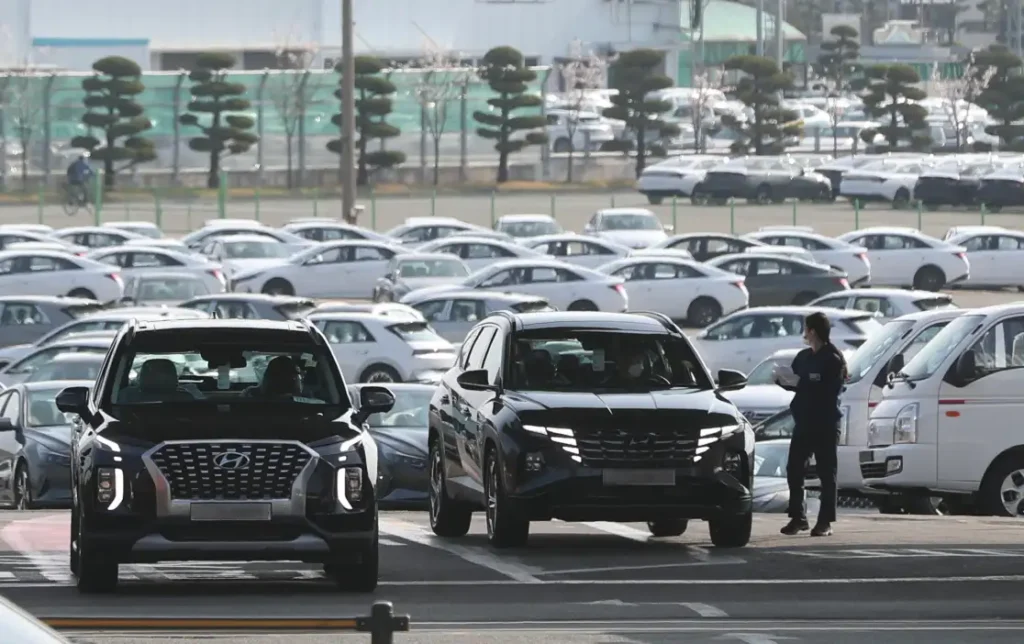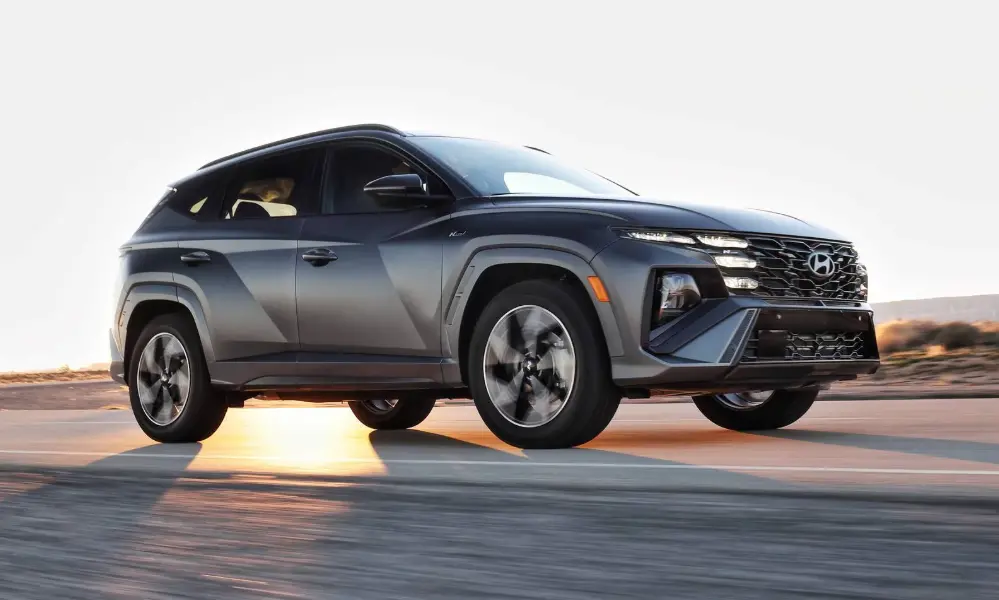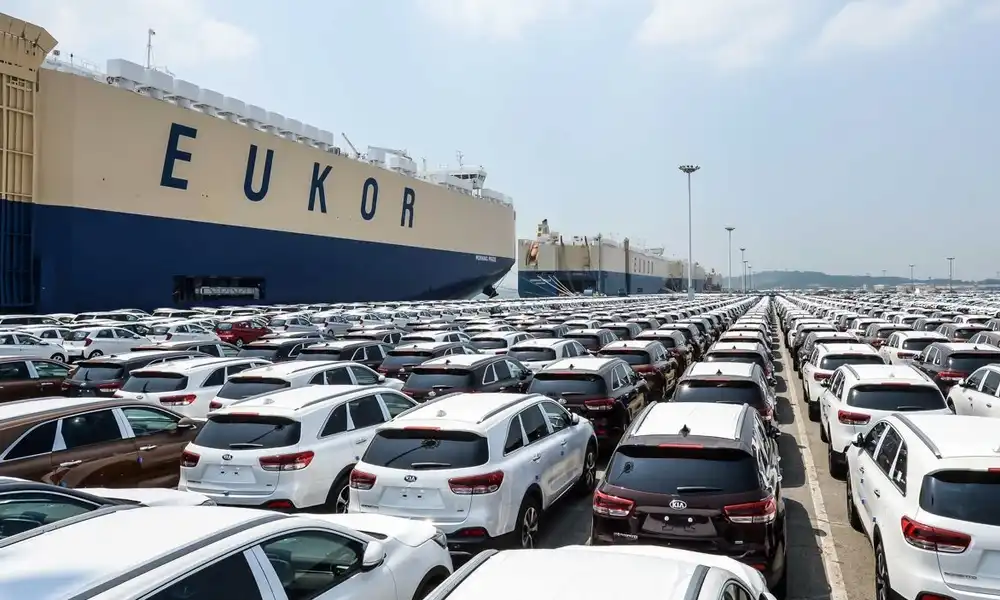Used car prices South Korea are influenced by vehicle age, model popularity, fuel type, and market demand. Buyers can find trends, pricing insights, and a complete guide to make informed decisions.
UsedCarKorea.com
The South Korean used car market is booming, offering diverse options from nearly-new SUVs to budget-friendly cars. Understanding used car prices in South Korea helps buyers make informed decisions and ensures they get the best value in a competitive market.
The used car market in South Korea has been growing rapidly over the past few years, driven by increasing demand for affordable vehicles, evolving consumer preferences, and the rise of digital platforms that make buying and selling cars easier than ever. In 2025, the market for used cars continues to thrive, offering a wide variety of vehicles ranging from nearly-new models to older, budget-friendly options. Understanding the trends in used car prices, the factors influencing them, and how to navigate the market is essential for both buyers and sellers.
Table of Contents

Current Trends in Used Car Prices
Used car prices in South Korea are influenced by several key factors including vehicle age, model popularity, fuel type, and market demand. One notable trend is that some used SUVs and high-end vehicles are being sold at prices comparable to or even higher than new models. For example, certain popular SUV models have seen prices rise due to limited availability and strong consumer demand. This has created a unique situation where buyers may pay a premium for a used car that is only a few years old, rather than purchasing a brand-new one.
Vehicles that are three to five years old dominate the market, as they often strike the perfect balance between depreciation and reliability. These nearly-new cars tend to retain their value well and appeal to buyers looking for modern features at a lower price than brand-new models. Older vehicles, while more affordable, are often less desirable due to higher maintenance costs and outdated technology.
Price segmentation in the used car market is also becoming more pronounced. Vehicles priced between $8,000 and $15,000 make up the majority of sales, catering to budget-conscious buyers and first-time car owners. Meanwhile, the segment for vehicles above $30,000 is growing steadily, indicating a rising interest in premium used cars. This trend shows that South Korean consumers are willing to invest in quality, well-maintained vehicles, even if they are not brand new.
Factors Affecting Used Car Prices
Several key factors affect used car prices in South Korea. Understanding these factors can help buyers make informed decisions and sellers price their vehicles competitively.
- Vehicle Age and Mileage
Younger vehicles with lower mileage generally command higher prices. Cars that are only one to three years old tend to be in excellent condition and come equipped with modern features, making them highly desirable. - Brand and Model Popularity
Popular domestic brands such as Hyundai and Kia tend to retain value better than less common models. High demand for certain models can drive up prices, while niche or older vehicles may depreciate faster. - Fuel Type
With the increasing popularity of eco-friendly vehicles, electric vehicles (EVs) and hybrid cars are experiencing higher demand. This demand can increase the resale value of these vehicles compared to traditional gasoline-powered cars. - Market Conditions
Supply and demand dynamics play a major role in pricing. Limited availability of certain models or high demand in urban areas can push prices upward, while surplus inventory can lower them. - Vehicle Condition
The overall condition of a vehicle, including cosmetic appearance, mechanical health, and service history, significantly impacts its resale value. Cars with a clean history and well-documented maintenance records generally fetch higher prices.
Digital Platforms and the Changing Market
The digital transformation of the used car market in South Korea has had a profound impact on pricing and consumer behavior. Online platforms now provide transparent information about vehicle histories, pricing, and financing options, making it easier for buyers to make informed decisions.
These platforms also allow sellers to reach a wider audience, resulting in more competitive pricing. Digital inspections, virtual car tours, and online auction services have further streamlined the buying process. As a result, both buyers and sellers can benefit from increased efficiency, reduced risk, and improved access to market information.
Regional Price Differences
Used car prices can vary significantly depending on the region. In major cities such as Seoul and Busan, higher demand and limited parking can lead to slightly higher prices compared to smaller towns or rural areas. Conversely, buyers in less populated regions may find more affordable options due to lower competition. Understanding regional pricing trends can help buyers identify the best deals and sellers set competitive prices.
Tips for Buyers
Navigating the used car market in South Korea requires careful planning and research. Here are some essential tips for buyers:
- Research Prices: Compare prices across multiple platforms to ensure you are getting a fair deal. Check for any price differences between online listings and physical dealerships.
- Inspect the Vehicle: Always have a used car inspected by a certified mechanic before purchase. This can reveal hidden issues that may affect the car’s performance or resale value.
- Check Vehicle History: Obtain a full history report, including previous accidents, maintenance records, and ownership details. This information can help you avoid vehicles with potential problems.
- Negotiate Wisely: Be prepared to negotiate. Pricing in the used car market can be flexible, especially for vehicles that have been listed for an extended period.
- Consider Financing Options: Explore various financing and loan options. Some platforms and dealerships offer tailored plans that can make purchasing a used vehicle more accessible.
Tips for Sellers
If you are selling a used car in South Korea, there are several strategies to maximize your return:
- Highlight Vehicle Condition: Emphasize recent maintenance, low mileage, and any upgrades to attract buyers.
- Use Multiple Platforms: List your car on several online platforms and consider both private and dealership sales to reach a larger audience.
- Set Competitive Prices: Research similar models to price your vehicle competitively. Overpricing can deter potential buyers, while underpricing may result in a financial loss.
- Provide Detailed Information: Include high-quality photos, service records, and a detailed description to build trust with potential buyers.
Emerging Trends
Several emerging trends are shaping the used car market in South Korea:
- Electric Vehicles (EVs): The growing interest in EVs is driving up demand and prices for used electric cars. Consumers are increasingly looking for eco-friendly options, and manufacturers are supporting the secondary market for EVs.
- Vehicle Subscriptions: Flexible subscription services that allow short-term use of cars without long-term commitments are gaining popularity, especially among younger buyers.
- Premium Segment Growth: Higher-end used vehicles, including SUVs and luxury cars, are becoming more popular. Buyers are willing to pay a premium for quality and comfort.
- Financing and Warranties: Enhanced financing options and extended warranty packages are encouraging more buyers to enter the used car market with confidence.
Conclusion
The used car market in South Korea is dynamic and evolving. With a wide range of vehicles, transparent online platforms, and emerging trends like electric vehicles and flexible subscriptions, buyers and sellers have more opportunities than ever. Understanding pricing trends, market dynamics, and regional differences is crucial for making informed decisions. By following best practices for buying and selling, both consumers and dealers can maximize value and satisfaction in this thriving market.
Whether you are a first-time buyer seeking an affordable vehicle or a seller looking to get the best return, staying informed about the latest trends in used car prices is essential. The market continues to grow, and with careful research and smart strategies, navigating it successfully is entirely possible.

FAQs
What factors influence used car prices in South Korea?
Vehicle age, mileage, brand popularity, fuel type, and condition are the main factors affecting used car prices in South Korea.
Are used SUVs more expensive than new cars in South Korea?
Yes, some popular SUV models are priced higher than new versions due to high demand and limited supply.
How can I find the best deals on used cars in South Korea?
Use online platforms, compare prices, check vehicle history, and inspect the car before purchase.
Are electric vehicles expensive in the used car market?
Used EVs are in high demand, often commanding higher prices than traditional gasoline cars in South Korea.
What is the typical price range for used cars in South Korea?
Most used cars are priced between $8,000 and $15,000, while premium models above $30,000 are increasingly popular.


